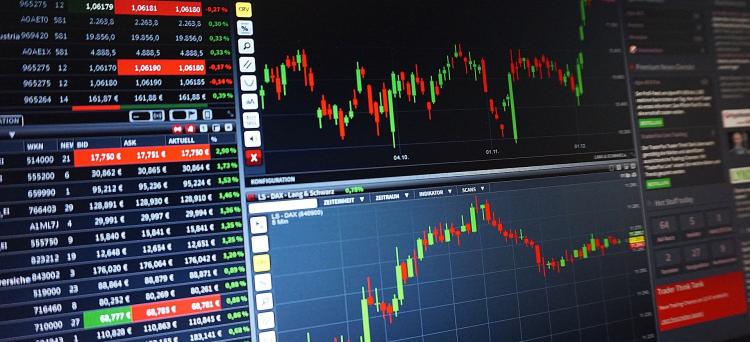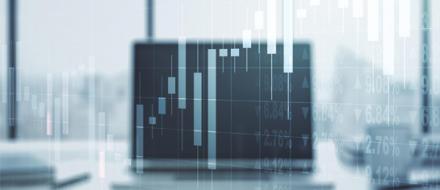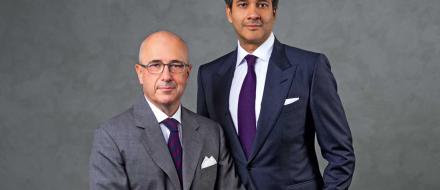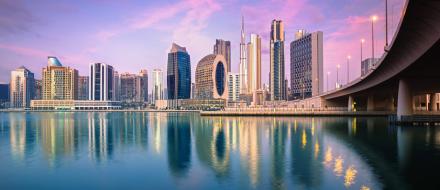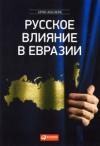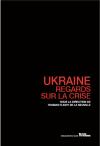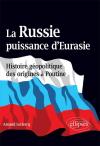Mineral resources give Russia the power
Arnaud Leclercq, group managing director and head of new markets, at Lombard Odier and author of the book, "Russian power in Eurasia, a geopolitical history of Putin's origins", in an interview with Elena Lykova from Ria Novosti, on why foreigners are in no hurry to invest in the Russian stock market and why invesments in the agricultural sector rather than the oil sector may be more promising.
In your opinion, what are the main factors which are influencing the situation on the Russian stock market today?
The first is the condition of the Russian economy, the second is oil and gas prices, and the third is the level of investor confidence in stability; in what will be happening in one year, two or three if they invest in the long term. The last point has always been a problematic issue for those who could be investing in Russian assets.
To what extent can the pressure of geopolitical risks be felt on the Russian market?
Geopolitical risks always influence the stock market, and this is especially important today when there is a crisis in Ukraine and while international sanctions are imposed on Russia. However, we are now witnessing the stabilisation of the situation in the south-east of Ukraine, except for some individual incidents. About a year ago when the escalation of the conflict started Russian bonds fell very seriously. Now they are almost back to the levels they were at before the conflict in Donbass. This can be seen in the example of VTB securities. It’s a paradox: the geopolitical crisis is not completely resolved, but investor confidence is already returning to the market, as is the ability to predict the situation.
Some analysts believe that the US stock market is overheated, that it is difficult to earn much there and that, perhaps, it is time to pay attention to the markets of developing countries. Is the Russian market now interesting for foreign investors?
If you are a foreign investor, and you are in America or England, for example, and every day you read negative news about Russia, it is unlikely you will want to invest. It is not that important if it is true what they say in the news or not. Although, of course, there are experts who know Russia well and see interesting opportunities.
How do you assess the prospects of the Russian stock market in the short and medium term (shares and bonds market) in relation to the factors above? Which sectors are promising for Russian investors, and why?
Our bank believes that the overall situation on the Russian stock market is not bad, or we can say neutral. Of course there is inflation, which is at more than 15%, but there is also a small increase in Russia’s GDP. Currently, sectors based on the local Russian production, such as agribusiness, could be attractive. The ban on imports of some products, the cheap ruble, and the state’s interest in the development of Russian production means we consider this sector promising.
And how do you feel about the securities of oil and gas companies?
Very cautiously. Currently the supply of oil and gas in the world is greater than the demand for them. Plus, do not forget that the United States continues the production of shale oil. Although production is decreasing it is a big sector which will, in about 2-3 years, export energy resources. Russia also continues largescale oil production. At the same time note that the GDP growth in the European countries, in South America and in China has slowed down, so there is no need for as much oil as was required before. That’s why for us this sector is not very interesting at the moment.
On 5 June, OPEC decided to maintain production quotas at 30 million barrels a day. That day the oil market reacted to the expected OPEC decision less rapidly than at the end of November last year. In your opinion, what will the dynamics of the Brent price per barrel be in the medium term?
It is always difficult to predict but the most likely dynamics will possibly be in the region of 55-75 dollars per barrel, unless a geopolitical crisis related to the oil market happens.
In your opinion, is the Russian stock market still heavily dependent on oil prices? How much do they interfere with our market?
In Russia, there are several sectors which are growing, and they represent about 10 percent, and the rest of growth is provided by the oil and gas sector. When the World Economic Forum was held in the early 2000s in Moscow, it was a major issue. Everyone said that this was Dutch disease, when the economy is dependent on oil, and in general this is not a gift. But, on the other hand, the presence of natural resources – is a source of power, and one of geopolitical instruments which can be controlled. And it is also very important.
Since the beginning of the year, analysts have predicted that the dollar and the euro will reach parity in 2015 but it still didn’t happen. We can see that since the statement from Mario Draghi, Head of the ECB, the euro has been rising against the dollar. How long term will this growth be and will the forecasts on the EUR / USD parity come true?
For now we don’t see a rising trend of the euro against the dollar, and if it is worth talking about parity, it will not happen before 2016. Do not forget that the dollar has been weak for the past 15 years, and only recently began to gain strength.
To what extent, in your opinion, will sanctions imposed on Russia by Western countries be the start for the development of the domestic market?
This may be a chance for the country, at least in theory. In practice, it will be clear in about ten years. For example, I have already said that agribusiness could become a promising area. Do not forget that in tsarist times, Russia was the largest agricultural country. But this does not mean that the investment in agriculture will occur immediately.
You are the author of the book “Russian power in Eurasia,” which first appeared in 2013. In your opinion, what global changes have happened in the Russian economy in this period?
I started writing this book about ten years ago and then almost no one talked about Eurasia and Russia’s place in this space. Currently, it is clear that relations between Russia and China are strengthening. Russia is starting to become a serious player in the East, although there remain very strong trade ties with Europe and especially with Germany.
Can you give some advice to investors who are just starting out and want to earn in the stock market?
It is necessary to invest only in those things that you understand well. For example, if you read an analytical article about the fantastic prospects for new technologies in the telecommunications sector but you do not understand anything in it, it is better not to take the risk.
I myself have invested in Russian bonds and the first thing I did was to conduct a fundamental analysis of the market as a whole, then of the sector and analysis of a company’s activities and its prospects. Only after this can you listen to a good banker who gives good advice on investments.



